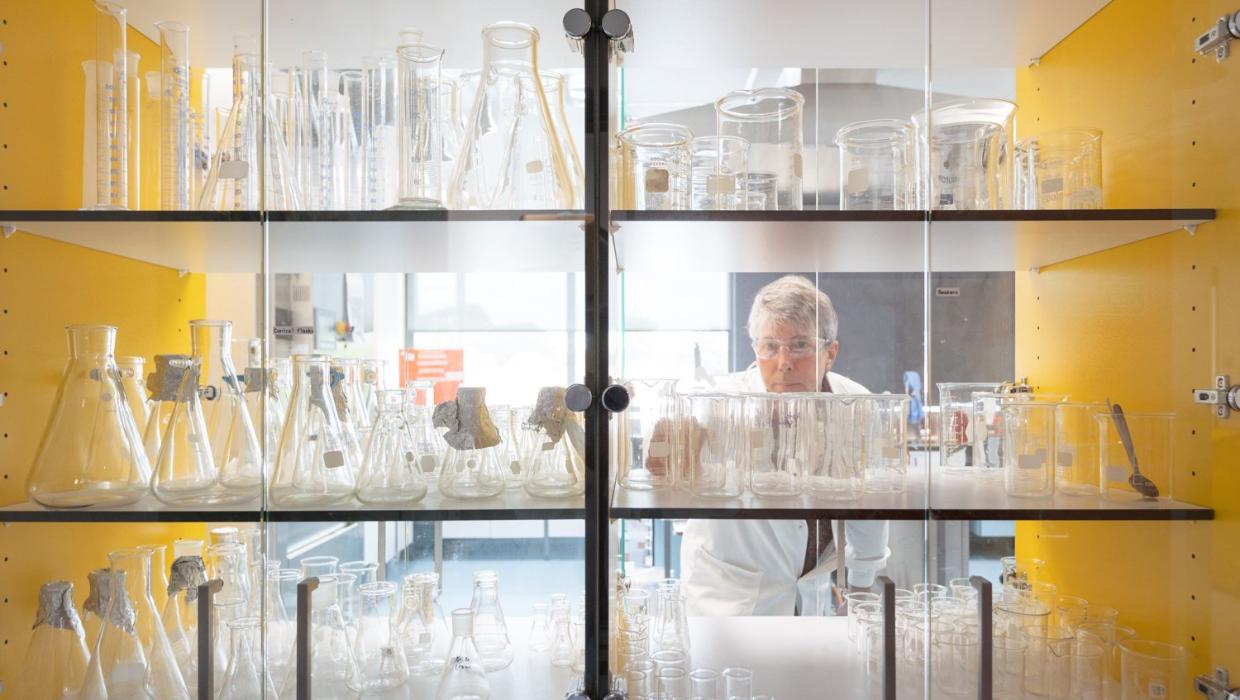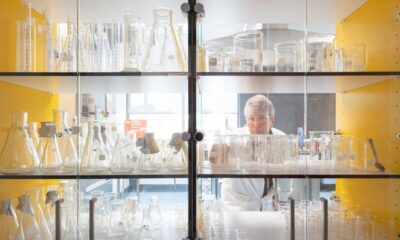Science
New Zealand’s Bioeconomy Science Institute Secures $20M for Research

The Bioeconomy Science Institute, a collaborative entity comprising AgResearch, Manaaki Whenua – Landcare Research, Plant & Food Research, and Scion, has successfully secured over $20 million in funding from the Endeavour Fund. This financial boost will support two innovative research programmes aimed at transforming New Zealand’s food, biotechnology, and horticultural sectors.
Groundbreaking Initiatives for Horticulture and Protein Production
The first initiative, titled “Super-Storing: Extending the Life of NZ’s Perishable Fruits,” has received $10.2 million in funding. Led by cultivar development scientist Associate Professor Robert Schaffer and Dr. Rosie Schröder, this programme seeks to enhance the storage life of perishable fruits, particularly summer fruits and berries, by applying advanced gene technologies. The goal is to replicate the long shelf-life of kiwifruit, enabling these products to be stored and transported by sea to markets in Asia and Europe. Currently, New Zealand’s fresh fruit exports generate approximately $3.5 billion annually, predominantly from kiwifruit and apples. This research is expected to diversify the horticultural sector and support the New Zealand Government’s ambition to increase export value from $7 billion to $12 billion per year.
“The impact of this work will directly benefit growers, extend harvest windows, and enhance resilience against extreme weather,” Schaffer states. “It’s about unlocking the full potential of New Zealand’s horticultural diversity.” The initiative is projected to generate over $600 million in additional domestic economic activity, reduce food waste, and lower emissions by replacing air-freight with sea-freight.
The second research programme, “Turning Pine Waste into Premium Proteins,” is a five-year, $10.4 million project. Led by Dr. David Hooks and Dr. Scott Knowles, this initiative aims to convert pine forestry residues into high-value proteins using Precision Fermentation (PF) techniques. The project will transform previously discarded softwood residues into fermentation feedstocks through innovative chemoenzymatic methods. These feedstocks will cultivate engineered yeast strains that can produce specialty proteins, such as osteopontin and casozepine, which offer nutritional benefits comparable to traditional animal-derived ingredients.
“This is more than a research programme,” Dr. Hooks asserts. “It’s a blueprint for how New Zealand can lead in the next generation of food and biotech innovation. We have abundant bioresources and world-class science; Precision Fermentation allows us to connect the two.” Dr. Knowles added that by converting forestry residues into feedstocks, the initiative unlocks new pathways for sustainable protein production that align with global efforts to establish climate-resilient food systems.
Researchers anticipate various innovations from this programme, including novel enzymes for converting lignocellulosic biomass into fermentable sugars, yeast engineering for high protein expression, and single-cell protein as a co-product for animal feed.
Strengthening New Zealand’s Research Landscape
The establishment of the Bioeconomy Science Institute follows a series of reviews that highlighted the need for an integrated research framework to maximize the impact of science in New Zealand. Earlier this year, the Government announced plans to merge the seven Crown Research Institutes into four new Public Research Organisations, with one focused specifically on the bioeconomy.
The Bioeconomy Science Institute now stands as New Zealand’s largest research organization. During a recent visit to the Lincoln campus, Hon Shane Reti, Minister of Science, Innovation and Technology, unveiled the new visual identity of the institute.
“This is an exciting step in sharing our new organization with the outside world,” said Transition Chief Executive Mark Piper. “As we embark on our journey as the Bioeconomy Science Institute, it’s great to share this new visual identity, which reflects the organization we are building for the benefit of Aotearoa New Zealand and the world.”
In addition to the research funding announcements, Minister Reti disclosed $6.5 million in new industry funding aimed at developing methods to reduce methane emissions from grazing livestock. He also witnessed the signing of a licensing deal with Nelson-based Seaweave to commercialize aquaculture monitoring technology.
These initiatives collectively reinforce New Zealand’s commitment to innovation in the bioeconomy, aiming to create sustainable solutions that support both local and global markets.
-

 Sports2 months ago
Sports2 months agoNetball New Zealand Stands Down Dame Noeline Taurua for Series
-

 Entertainment2 months ago
Entertainment2 months agoTributes Pour In for Lachlan Rofe, Reality Star, Dead at 47
-

 Entertainment4 weeks ago
Entertainment4 weeks agoNew ‘Maverick’ Chaser Joins Beat the Chasers Season Finale
-

 Sports2 months ago
Sports2 months agoSilver Ferns Legend Laura Langman Criticizes Team’s Attitude
-

 Sports3 days ago
Sports3 days agoEli Katoa Rushed to Hospital After Sideline Incident During Match
-

 Politics1 month ago
Politics1 month agoNetball NZ Calls for Respect Amid Dame Taurua’s Standoff
-

 Entertainment2 months ago
Entertainment2 months agoKhloe Kardashian Embraces Innovative Stem Cell Therapy in Mexico
-

 World3 months ago
World3 months agoPolice Arrest Multiple Individuals During Funeral for Zain Taikato-Fox
-

 Sports3 months ago
Sports3 months agoGaël Monfils Set to Defend ASB Classic Title in January 2026
-

 Entertainment1 month ago
Entertainment1 month agoTyson Fury’s Daughter Venezuela Gets Engaged at Birthday Bash
-

 Sports1 month ago
Sports1 month agoHeather McMahan Steps Down as Ryder Cup Host After Controversy
-

 World2 weeks ago
World2 weeks agoSevere Winds Hit New Zealand, Over 100 Flights Canceled



















